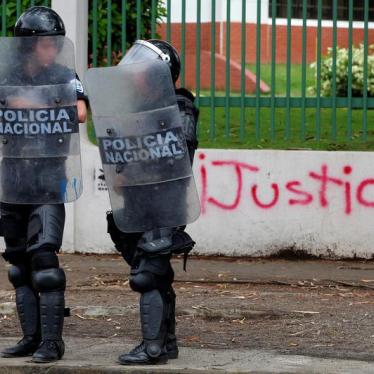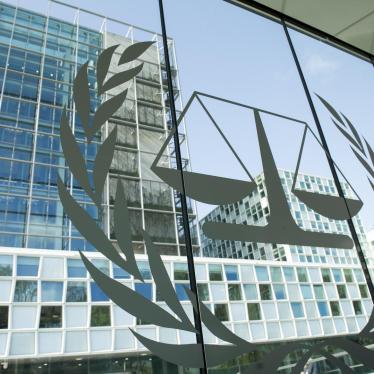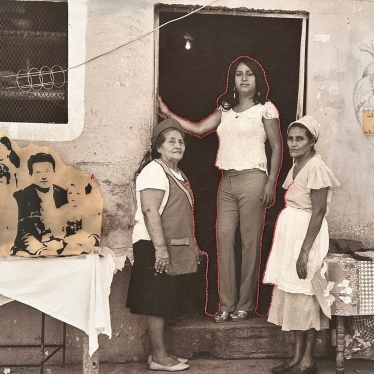(Washington, DC) – OAS member states should strongly condemn Secretary General Luis Almagro’s unilateral rejection of the candidate the Inter-American Commission on Human Rights (IACHR) appointed as its executive secretary, Human Rights Watch said today.
Based on his performance, the commission had unanimously renewed the mandate of Paulo Abrao, who has served as its executive secretary since August 2016, with the new term to begin in August 2020. But on August 15, the day Abrao’s contract was set to expire, Secretary General Almagro informed the IACHR that he would abstain from “advancing in the process of appointing the executive secretary.”
“OAS Secretary General Almagro’s decision to obstruct the Inter-American Commission on Human Rights’ appointment of its executive secretary breaks with 20 years of OAS practice and undermines the commission’s autonomy,” said José Miguel Vivanco, Americas director at Human Rights Watch. “It also undercuts the commission’s credibility as an independent body, endangering its critical role in protecting fundamental rights and freedoms in the Americas without political interference.”
The commission’s executive secretary is an OAS employee. Under the commission’s statute, however, the OAS secretary general is supposed to consult with the commission in appointing the executive secretary. The secretary general can only remove the executive secretary after consulting with the commission and informing its members of the reasons.
The commission noted that Almagro had not consulted with it before deciding not to extend Abrao’s contract. Almagro justified his decision by citing an analysis by the Secretariat for Legal Affairs of the OAS General Secretariat of his powers over the process to appoint the executive secretary, and a confidential ombudsperson’s report about management complaints made in 2019 against the Commission. The ombudsperson does not have the power to investigate individual cases. It is unclear whether any of the complaints involve Abrao.
For over 20 years, the Inter-American Commission has independently selected and appointed its executive secretary and special rapporteurs. They are selected based on their credentials and expertise and are not political appointees. In the only previous instance in which an OAS secretary general attempted to interfere with the commission’s decision to appoint an executive secretary, a special rapporteur, and another high-level official in 2004, he swiftly backtracked after a strong reaction by member governments and the human rights community in the region.
The OAS secretary general is also bound by the OAS Charter, which established the commission as a permanent and autonomous organ of the OAS, alongside, and not under the control of, the General Secretariat.
Almagro said his decision was based on “dozens” of “serious” management complaints by OAS employees that he said the commission had failed to forward to the OAS Inspector General. The commission, however, reported that it had monitored these allegations, all of which were made in 2019, as well as the measures that had been adopted to address them, including recommendations by the OAS ombudsperson.
On August 27, UN High Commissioner for Human Rights Michelle Bachelet said this situation risks undermining the “independence and proven efficacy” of the Inter-American Commission and called on the OAS to adopt urgent measures to end its dispute with the commission regarding the appointment of Abrao.
Whatever the basis for Almagro’s decision, his failure to respect the commission’s choice of its executive secretary – and even to consult with it as legally required – undermines the body’s independence, Human Rights Watch said.
“Any serious allegations of improper conduct involving the IACHR should of course be thoroughly and impartially investigated,” Vivanco said. “But using an allegedly ongoing administrative investigation as a pretext to undermine the autonomy and credibility of the Inter-American Commission of Human Rights poses a serious threat to a body that has made enormous contributions to the protection of human rights in the region on issues ranging from free speech to protecting minorities and fighting impunity.”
OAS Leader Undermining Rights Body
Members Should Protect Commission’s Credibility
Your tax deductible gift can help stop human rights violations and save lives around the world.
Region / Country
Most Viewed
-
September 27, 2014
Guinea: 5 Years On, No Justice for Massacre
-
April 17, 2024
West Bank: Israel Responsible for Rising Settler Violence

-
October 29, 2020
“I Sleep in My Own Deathbed”

-
April 27, 2021
A Threshold Crossed

-
June 24, 2022
Q&A: Access to Abortion is a Human Right




